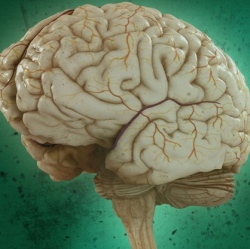
A single gene may have paved the way for the rise of human intelligence by dramatically increasing the number of brain cells found in a key brain region. This gene seems to be uniquely human: It is found in modern-day humans, Neanderthals and another branch of extinct humans called Denisovans, but not in chimpanzees.
By allowing the brain region called the neocortex to contain many more neurons, the tiny snippet of DNA may have laid the foundation for the human brain’s massive expansion.
"It is so cool that one tiny gene alone may suffice to affect the phenotype of the stem cells, which contributed the most to the expansion of the neocortex," said study lead author Marta Florio. Still, it’s likely this gene is just one of many genetic changes that make human cognition special, Florio said.
